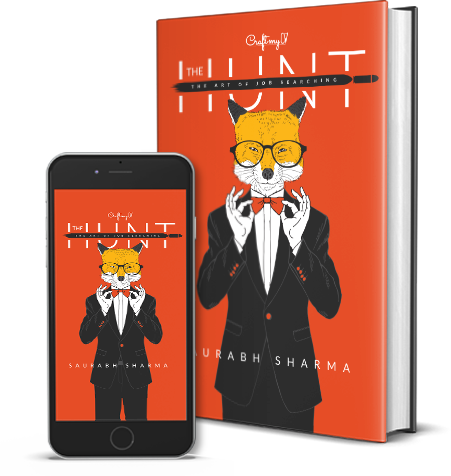The following framework comes in handy when you’re thinking about how to construct the bullets points to make the best resume for yourself.

Your bullets should generally meet the following three criteria, which when combined come together to form the Three R Model for Bullet Building.
The three R Model for bullet points building are:
Relevant
Relative
Results-oriented
Bullet points in your resume must be highly relevant to the job description
The first criteria your resume bullets points must meet is that of relevance to the job to which you’re applying.
It’s crucial to align the results you communicate to the listed responsibilities for the role in order to get past the ATS filter.
If one of the stated responsibilities is to “Retain and grow revenue with our largest mid-market partners”, for example, your bullet point may look like this:
- Drove 87% client retention for 13 mid-market accounts and surpassed account growth targets by 55% in 2019.
Not every bullet point on your resume has to directly align with a specific keyword or set of keywords mentioned in the job description, but the majority should.
Every bullet point in your resume can make or break your chances of getting shortlisted. Spend the most amount of time on this section of your resume.
You should also list the bullets under each position of professional experience in order of most relevant to least relevant.

Often, recruiters will only read the first one or two bullets points at first glance, so it’s best to lead with those that most closely match the keywords or main themes pulled from the job description.
Include quantifiable values in the bullet points
To help figure out the order in which to list your bullets, you can start by asking yourself, “if I could only show the recruiter one bullet, which one would it be?” Make that your first bullet.
Then, continue to ask yourself the same question with the remaining bullets until all are accounted for on your resume.
The second test your bullets points must pass is relativity, which refers to how your results stand up to a standard measure of performance.
For instance, simply saying “Sold $5 million contract value in 2015” doesn’t mean much on its own. Is that a lot? A little?
Show comparative values in your resume for a better understanding of your accomplishments
You want to compare your performance to established targets or peer averages whenever possible to give the recruiter a sense of the magnitude of your achievements.
So, you might say something like “Achieved 150% of target contract value sales with $5 million sold in 2015.” When it comes to bullets on a resume, the more quantifiable they are, the better.

Try to think of ways to articulate your achievements into tangible value statements that will resonate immediately with the recruiter.
For example, say you led a project which streamlined the workflow for a process inside your company.
How much time did that save for each person involved in the process?
How much are those people paid and what is that time worth?
This technique is known as framing, and it’s especially useful for making your results sound more impressive without having to lie about them.
In the above example, reframing the benefit from a time saving to dollar savings and from a weekly amount to an annual amount makes the figure both easier to understand and more significant to the reader.
Do not put unnecessary jargons in your resume. Recruiters like simple language with quantifiable data.
If you’re unsure of the specific numbers involved, take an educated guess—just be sure you’re able to confidently talk through how you arrived at your numbers during an interview.

You can pull quick salary estimates for any position from Glassdoor.com to keep your numbers as grounded in reality as possible.
It goes without saying, but I’ll say it anyway: don’t over-inflate your achievements beyond a reasonable level just to make them sound more impressive.
Do not oversell yourself and never tell lies in your resume
The more extraordinary your achievements sound, the more recruiters and interviewers will ask you for greater detail about them, and you may find yourself in a position of digging a deeper hole of lies.
The truth has a way of coming out eventually, and the last thing you want is for an opportunity to be yanked out from under you right when it’s within your grasp.
Don’t be boastful in your resume because the recruiters are experts in knowing when a candidate is lying about accomplishments.
If you’ve never heard the story of former Yahoo CEO Scott Thompson, give it a read—you don’t want that to happen to you, trust me. Finally, your bullets points must focus on results, not responsibilities.
Just by applying for the role, the recruiter will assume that you meet its basic requirements, so she’ll be looking for evidence that you’d excel in the role rather than just meet expectations.

You’ll need to highlight achievements from your experience that make you stand out and give the recruiter a sense of how you’d handle the role you’re applying for.
Frequently Asked Questions (FAQs):
Q. How many bullet points are enough in a resume?
A. A maximum of 5 bullet points in for your work experience in the current company, 3 bullet points for your work in the previous company and a maximum of 2 bullet points for the work done in earlier companies.
Q. How much time recruiters spend reading a resume?
A. Recruiters are always flooded with tons of resumes and they don’t have enough time to go through all the resumes they receive in detail.
Hence, a typical recruiter spends less than 10 seconds reading a resume before putting it in a short-listed or rejected bucket. Short-listed resumes are looked at again by the recruiters, and this time in detail.
Q. Should you mark certain words in Bold in a resume?
A. Marking important phrases and words in Bold help the recruiters to quickly go through the relevant details about a candidate.
This is a tricky job, so you need to be really careful to not mark trivial stuff in Bold because the recruiters will reject your resume in less than 10 seconds.
Q. Is there a resume format that recruiters like the most?
A. There is no resume format that we can call the best or the most liked. Recruiters prefer a well-structured resume with shorter sentences and a total length of not more than 2 pages.
Q. What is considered as an accomplishment by the recruiters?
A. Recruiters love to see how a candidate has improved the revenue, process, efficiency, productivity or costs for a company.
Bullet points in a resume should only talk about the positive impact the candidate has made. Do not simply list your responsibilities because this does not tell about your achievements in a particular role.
It is our endeavour to share our knowledge and experience through articles, videos, comic strips and illustrations that could help you achieve your career goals. We believe only you can create a perfect resume for yourself and CraftmyCV is here to simply guide you on the correct path. Share your feedback with us at feedback@craftmycv.com

Leave a Reply